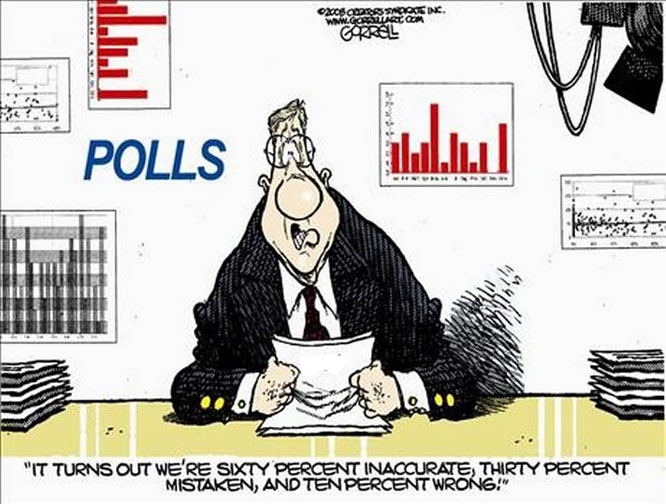
A big political gambler I met in Las Vegas in 2016 is in London betting that the Republican Party will keep control of the U.S. Congress. Robert Barnes is essentially wagering that U.S. pollsters haven't fixed any of the problems that led them astray during the 2016 presidential campaign.
Barnes, a trial lawyer, lives in Las Vegas, frequenting the city's sportsbooks, but he has to travel to the British Isles to wager on U.S. politics since it's not allowed in the U.S. On this side of the Atlantic, the bookies know him as a high roller; the political betting team at Ladbrokes even tweeted his photo to mark his arrival and his 100,000 pound ($130,000) bet on the Republicans' House majority. Given that the entire U.S. primaries betting market is in the single millions in the U.K. and Ireland, that's quite momentous.
Barnes told me he'd gotten "about 3/2" odds, which would mean winnings of 50,000 pounds on the 100,000 he staked, implying a 40 percent probability. Ladbrokes's official odds on a Republican majority are 13/8 (38 percent probability). Paddy Power, a big bookmaker based in Ireland (where Barnes went to place his bets in 2016), gives 2/1 odds on a Republican House majority (33 percent probability). These odds are far removed from most U.S. pollsters' predictions; Nate Silver's FiveThirtyEight website, which aggregates polls, puts the probability of the Republicans' keeping control of Congress at 14.2 percent.
Barnes wishes he could have gotten Silver's odds, about 6/1, but, just like him, the U.K. bookies don't quite trust U.S. polls. The difference is in the degree of disbelief. Barnes, for his part, is as confident of winning as he was when he placed large bets on Brexit and Donald Trump's election victory in 2016.
Past success at predicting something is, of course, no guarantee of future accuracy. But whether Barnes wins or loses (he's also wagering on the Republicans to increase their Senate majority) is his private affair; he's a Trump supporter with a strong anti-elite stance and his satisfaction when he wins probably has as much to do with politics as with money. More universally interesting are the reasons Barnes feels so certain the polls will be wrong again.
In its postmortem of 2016 polling, the American Association for Public Opinion Research named three likely reasons why Trump's support in certain states was underestimated. The first of these is one pollsters always use when they get it wrong: last-moment decisions by undecided voters.
The other two were specific to the 2016 situation. Many polls failed to adjust for the over-representation of college graduates among respondents: "Better-educated people are much more likely to participate in surveys than those with less education," the postmortem said, and more advanced education was a clear marker of support for the Democratic candidate in 2016. Besides, some Trump voters failed to reveal themselves as such, preferring to keep their cards close to the chest.
Mostly, the 2016 polls were within the margin of error, so a claim can be made for scientific accuracy even if they didn't predict Trump's victory. But the authors of the postmortem pointed out that while national polls were relatively accurate (after all, Hillary Clinton did win the popular vote), "polls in key battleground states showed some large, problematic errors."
That's likely due to their design. For example, 38 percent of battleground state polls used opt-in internet polling, and another 16 percent used this often misleading method to supplement "robo-polling," in which an automated system calls random landlines and asks questions. Others used live phone calls or combined them with online polls and robo-polling.
Pure robo-polling (14 percent of the surveys) yielded the best results in battleground states, but these surveys' average error was still pretty high at 2.7 percentage points. And, since by law robo-polling can only be done on landlines, its relative success is a 2016 fluke - the method reached older, working-class voters who are unlikely to be cord-cutters but likely to support Trump.
The Association for Public Opinion Research offered to coordinate fundraising to improve state polls as local newspapers' budgets for such surveys shrink. Barnes, however, is betting that none of the 2016 problems have been fixed.
"There are systemic issues with polling post-2012," he told me via private messaging. "A low response rate, reliance on self-selected polls with inadequate sampling of older, rural, blue-collar voters." Pollsters, according to Barnes, have no incentive to change anything because the current methodologies are rewarded with contracts from a partisan media, while "counternarrative pollsters like Rasmussen got shut out of media contracts."
Rasmussen Reports, which in 2016 cautioned the public repeatedly that the presidential race was closer than it seemed and turned out to be better predictors than most competitors, now says the midterm House election is a close call and points out that, like in 2016, Republicans are less likely than Democrats to tell anyone of their choice ahead of time.
If, like Barnes, you don't trust the polls, you go with other ways to divine the results of the midterms. "The Democrat House theory depends on polling accuracy, cash and candidate recruitment as more important than district partisan lean, incumbency or historic limitations on double-digit midterm improvements," Barnes says. His own approach is close to that of Richard Baris at the People's Pundit website, who has constructed a model based on historical indicators which predicts more Republican than Democratic successes in closely fought races.
History-based tools shouldn't produce better results than public opinion surveys. But if polling methodology at the state level doesn't improve compared with 2016, it's only natural to go with all sorts of other indicators or even one's gut feeling.
(COMMENT, PLEASE, BELOW)
Leonid Bershidsky is a Bloomberg View columnist. He was the founding editor of the Russian business daily Vedomosti and founded the opinion website Slon.ru.


 Contact The Editor
Contact The Editor
 Articles By This Author
Articles By This Author